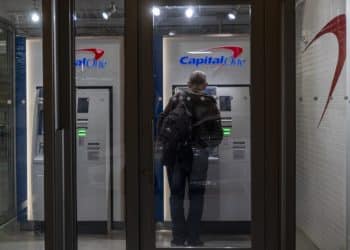21 Reasons Why the Mobile Banking Naysayers Are Wrong
 No monetization — that’s the crux of the argument against mobile banking. The Debbie Downers of banking say mobile has not — and, to some degree, will not — be monetized by banks to any great extent.
No monetization — that’s the crux of the argument against mobile banking. The Debbie Downers of banking say mobile has not — and, to some degree, will not — be monetized by banks to any great extent.
“Mobile is the fastest-growing channel and that it is a big deal,” one of the industry’s consultants wrote recently. “I think we basically agree: mobile is here to stay. But banks have yet to figure out how to monetize the channel (and maybe never will), and mobile hasn’t yet done anything to really affect the profit dynamics of banking.”
Others argue that mobile banking:
- is essentially devoid of incremental value for customers;
- has near zero ability to create financial benefit for banks; or
- takes focus away from other new-business endeavors that would produce greater results.
What follows are 21 responses to those bankers who say mobile banking is no big deal. Many bankers who want to innovate from within face stiff arguments against mobile banking, even today. We hope this list, which is based on an engaging discussion on Bank Innovation‘s LinkedIn group here, will help such bankers overcome those huddles.
- Transformative Power. It is impossible today to know how transformative will be mobile banking in the final analysis. But there is a high likelihood that mobile banking will at least mirror online banking in transformative power, and that is reason to invest in mobile banking today.
- Customer Empowerment. Mobile banking will empower customers in ways we cannot even fathom. The power truly is in the palm of the customer’s hand.
- The Functionality Is Already There. Development of mobile banking today is not dissimilar to how online banking evolved in the 1990s. Many banks have already developed transaction functions in their mobile apps, and that functionality is valuable to the customer and bank now.
- Big Data. To a certain extent, large banks do not even know the data they already have, let alone are they using big data to develop new services for customers. But banks will get there, and the value explosion will be substantial.
- Convenient, Convenient, Convenient. Arguably, no channel is banking is more convenient and handy to the customer today than mobile. If that’s not value, nothing is.
- Smartphones Have Already Changed Behavior. Users of smartphones have already changed the way they do so much — how they spend, process information, learn, trade stocks, date, buy Snapple, etc — that banking, too, will continue to change radically with the advancement of mobile banking. Banks simply cannot ignore this fundamental change in customer behavior.
- The WOW Factor. Customers are rightly amazed by the various mobile banking features. Who doesn’t just say “WOW” when RDCing a check?!? The WOW factor is real and translates into brand equity and marketing ROI.
- Contextualization. Mobile banking has the unique opportunity to allow for contextual financial transactions. Only mobile truly puts the bank where the commerce is happening.
- Information When Customers Need It. Financial information can be just as powerful as finances, in certain circumstances, and mobile banking can facilitate the delivery of highly valuable financial information within particular contexts instantaneously. The naysayers will argue that a simple telephone call can do that, but certain data and analytics will work better via a device, and not every customer wants to ask in public, out loud, at the checkout counter how close they are to overdrawing on their checking account.
- In-the-Moment Transactions. Mobile banking can allow for financial transactions where and when customers want them, and will increasingly make visits to branches unnecessary, even for the most complex of financial actions. Sorry, tellers.
- Less Paperwork. Right, everyone wants more paperwork — not.
- Increased Speed. With mobile, so many financial transactions can happen faster, for example: deposits happen faster; customer responses are immediate; fraud prevention is already in-the-moment. This is what the Old Boys Club calls a win-win.
- Quality of Information Gathering. Whom would you trust for accurate data, a customer service rep or a mobile device delivering geolocation or QR data?
- Customer Experience Must-Have. Customer expectations from their service providers have already ratcheted up. “What do you mean you can’t email it to me?!?” is a customer service nightmare heard more frequently by technologically challenged FIs.
- Faster Credit Decisioning. Mobile allows for FI to take credit applications and delivering credit decisions with greater speed. That’s beneficial to all.
- More Efficient Functionality. The motion action within the iPhone is designed to eliminate keystokes. That reduced effort is being leveraged in mobile banking to make the execution of financial transactions even easier than via online banking. Yeehaw!
- Cash Replacement. Increasingly, customers are finding that, at least in a pinch, their mobile device can replace cash. As mobile payments advances, mobile will increasingly fill this role.
- Valuable Alerts. Sometimes, a heads up can save you from a golf ball in the head. Same in banking. Real-time alerts are game-changers in certain contexts.
- Reactive Fraud Prevention. More than one startup is trying to leverage geolocation data for better fraud prevention. But even the ability to text a customer at the POS for transaction confirmation is a risk manager’s wet dream.
- Proactive Financial Planning and Management. Wouldn’t it be great to change directions on financial planning or investment positions in real-time on the fly? Oh, yeah, you can via mobile.
- Negotiate Financing Alternatives in Real-Time. Customers can be at a disadvantage when faced with a financing deal for a POS retail purchase. Mobile allows for customers to find financing alternatives in real-time, say, on the floor of a dealership. That’s beyond empowering. That opens FIs to new transactions opportunities, allowing banks yet another way to monetize mobile. Whoops, there’s that word again.











